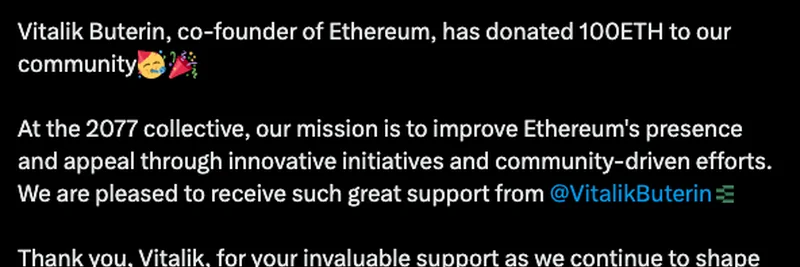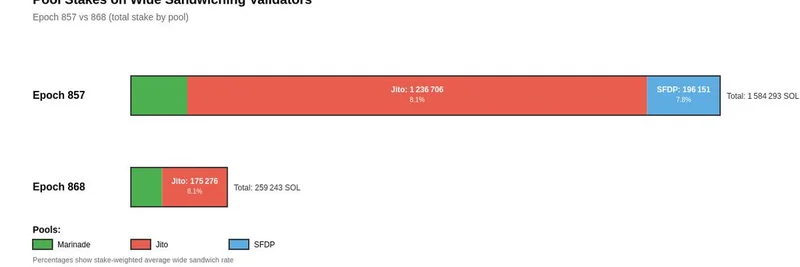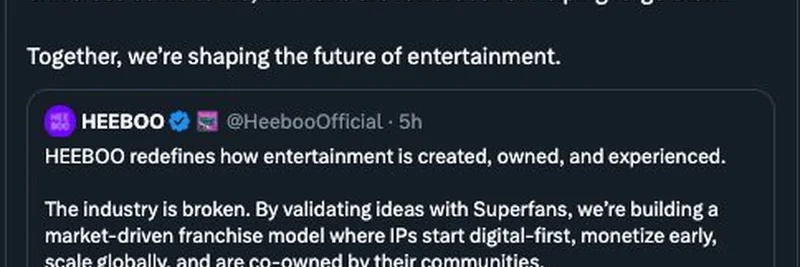In the wild world of cryptocurrency, where projects launch and crash faster than a viral meme, Solana co-founder Anatoly Yakovenko shared some real talk on X that hits home for anyone in blockchain. His tweet, posted on August 16, 2025, reminds us that failure isn't just common—it's expected. But the key? Failing in a way that keeps the door open for round two.
Yakovenko wrote: "19/20 startups, grants, ideas, projects, etc… fail, and fail for tons and tons of reasons. The best thing that any founder can do is to fail in away that builds trust so people can back them to try again. Maybe learn something and improve with repetition."
This nugget of wisdom came as a reply to a detailed critique by Artem Oak, CEO of OAK Research, about the 2077 Collective—a project meant to boost Ethereum's marketing game. Backed by a hefty 100 ETH donation from Ethereum's own Vitalik Buterin, the initiative promised innovative community-driven efforts to amp up Ethereum's appeal. But things went south fast.
As Oak pointed out, the founder dipped out citing mental health issues, the website went dark, social accounts fell silent since April, and there's zero transparency on where the funds vanished. Attempts to collaborate or get updates? Crickets. The project's Discord showcased lackluster results, like videos scraping just 65 views on YouTube. Oak even offered to help redistribute any leftover funds to worthy causes, like staking them via Golem Foundation or escrowing with crypto influencer Cobie, but no response.
For those new to the scene, "rug pull" is crypto slang for when founders abandon a project and run off with the money, leaving investors high and dry. While 2077 Collective might not be a straight-up rug, the lack of accountability echoes the same trust-shattering vibes that plague the industry.
Yakovenko's point shines here: Most ventures flop—stats show about 90% of startups fail overall, and crypto's no exception with its high-risk, high-reward nature. But in blockchain, where communities fuel everything from DeFi protocols to meme tokens, trust is the real currency. Failing transparently means sharing what went wrong, returning unused funds if possible, and owning the mistakes. That way, backers might give you another shot, armed with lessons learned.
This rings especially true for meme tokens, the playful yet volatile corner of crypto we're all about at Meme Insider. Meme coins like Dogecoin or newer Solana-based hits thrive on hype and community loyalty. But when things tank—due to market dumps, dev errors, or just bad luck—founders who communicate openly often see their communities rally for reboots or new ideas. Think of it as leveling up: Each failure, handled right, builds your rep and attracts better talent and funding next time.
Solana itself, under Yakovenko's guidance, has weathered network outages and market slumps, but transparent updates and quick fixes have kept the ecosystem buzzing with meme token launches and NFT drops. Contrast that with Ethereum's marketing struggles, as highlighted in Oak's post, and you see why cross-chain lessons matter.
If you're a blockchain practitioner eyeing your next meme token launch or grant application, take this to heart. Prioritize audits, regular updates, and clear roadmaps. Tools like multisig wallets (where multiple keys are needed for transactions) can add layers of trust. And if things go pear-shaped? Document the postmortem—share it on X or your project's Discord. It might just turn a flop into a foundation for success.
In a space full of grift and ghosting, Yakovenko's advice is a breath of fresh air: Fail better, build trust, and keep iterating. What's your take on crypto failures? Drop us a line or check out more insights on meme-insider.com.



